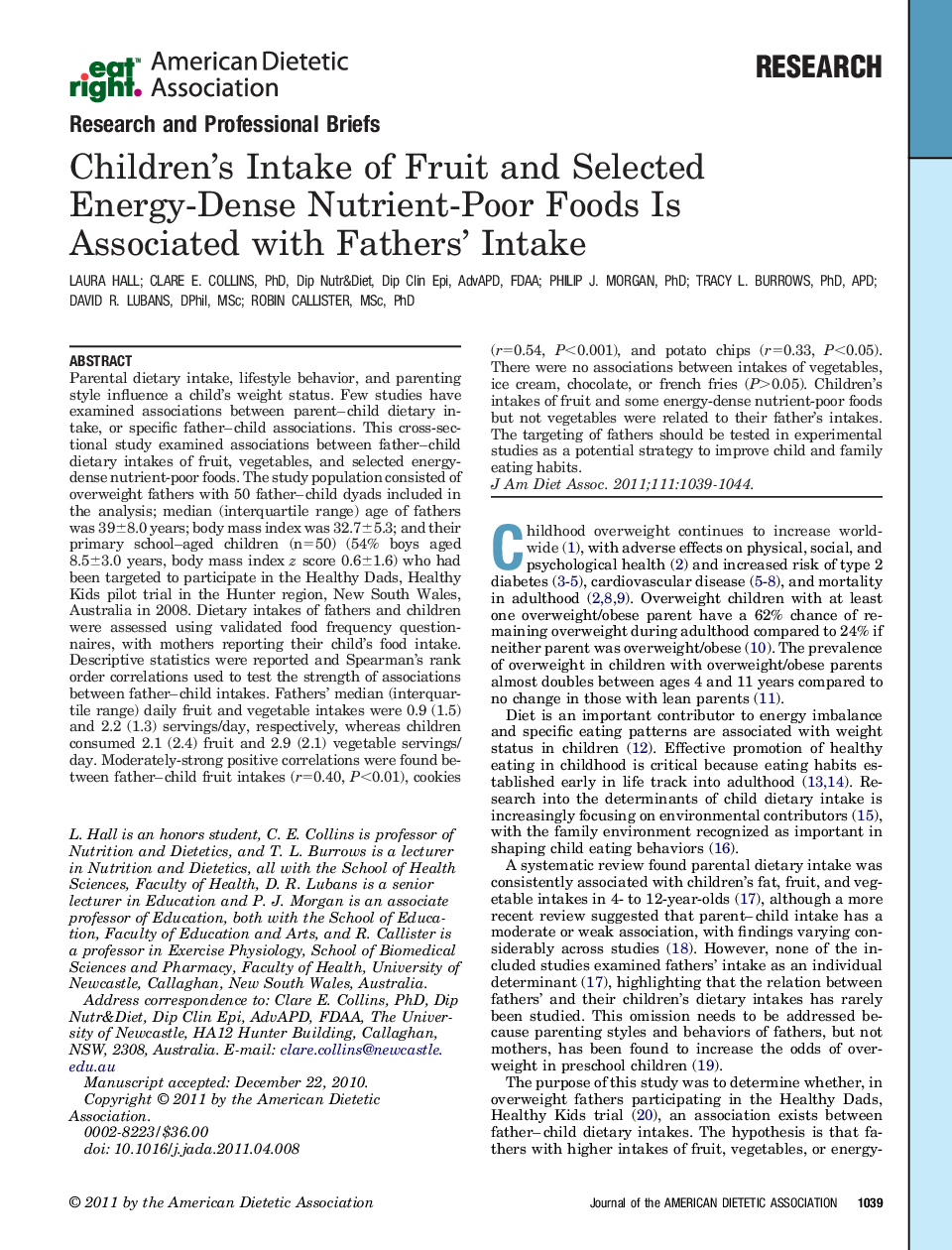| کد مقاله | کد نشریه | سال انتشار | مقاله انگلیسی | نسخه تمام متن |
|---|---|---|---|---|
| 2654091 | 1139799 | 2011 | 6 صفحه PDF | دانلود رایگان |
Parental dietary intake, lifestyle behavior, and parenting style influence a child's weight status. Few studies have examined associations between parent–child dietary intake, or specific father–child associations. This cross-sectional study examined associations between father–child dietary intakes of fruit, vegetables, and selected energy-dense nutrient-poor foods. The study population consisted of overweight fathers with 50 father–child dyads included in the analysis; median (interquartile range) age of fathers was 39±8.0 years; body mass index was 32.7±5.3; and their primary school–aged children (n=50) (54% boys aged 8.5±3.0 years, body mass index z score 0.6±1.6) who had been targeted to participate in the Healthy Dads, Healthy Kids pilot trial in the Hunter region, New South Wales, Australia in 2008. Dietary intakes of fathers and children were assessed using validated food frequency questionnaires, with mothers reporting their child's food intake. Descriptive statistics were reported and Spearman's rank order correlations used to test the strength of associations between father–child intakes. Fathers' median (interquartile range) daily fruit and vegetable intakes were 0.9 (1.5) and 2.2 (1.3) servings/day, respectively, whereas children consumed 2.1 (2.4) fruit and 2.9 (2.1) vegetable servings/day. Moderately-strong positive correlations were found between father–child fruit intakes (r=0.40, P<0.01), cookies (r=0.54, P<0.001), and potato chips (r=0.33, P<0.05). There were no associations between intakes of vegetables, ice cream, chocolate, or french fries (P>0.05). Children's intakes of fruit and some energy-dense nutrient-poor foods but not vegetables were related to their father's intakes. The targeting of fathers should be tested in experimental studies as a potential strategy to improve child and family eating habits.
Journal: Journal of the American Dietetic Association - Volume 111, Issue 7, July 2011, Pages 1039–1044
